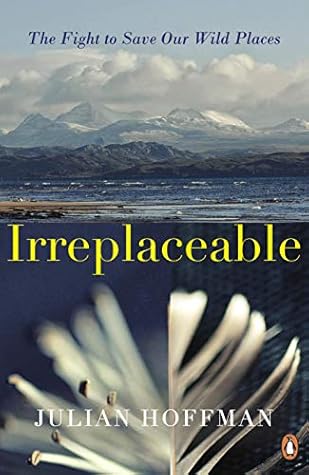More on this book
Kindle Notes & Highlights
Read between
October 26 - November 19, 2020
But what is a map, any map, however subtle its scale, to the song of the skylark? What is a map to the arc of the avocet, that slow flight back from extinction to survival? What is a smooth sheet of paper to the centuries of evensong sung in peninsular churches, to the thousands of cockle shells embedded in their walls? What is a map to the murmur of the rising tide, to those three white egrets, aglow in the pewter sky?
Paul liked this
Ian was leading us towards a memorial that was shaped like a gravestone, inscribed to a charcoal-maker who’d died on that precise spot in the woods. It read: George Yardley, woodcollier, was burnt to death in his cabin on this place Oct 11 1786.
Paul liked this
I’ve sometimes heard the argument, from otherwise articulate and passionate advocates for nature, that there’s no point in trying to preserve what remains of Britain’s wildlife because there is so little of it left. But even three or four butterflies met on a summer’s walk can be as magical and transformative as those teeming meadows of old. The wonder of the wild world, whether poorer or not, is no less meaningful on an individual level for the changeable status of its base material.
There are countless reasons why we should celebrate, preserve and repair the natural world wherever possible, from its beauty to our wellbeing and all points in-between. But perhaps the most compelling for me is its innate right to exist, to be able to express itself uncoupled from human needs.
Places such as these are our contemporary commons, spaces of communal connection and political engagement. The tragedy of the commons is not so much that users act out of individual self-interest and thereby harm the good of the many, but that these vital shared spaces are deemed to be of so little value by many who hold power.
At its very heart, community is the consequence of collective commonalities, but also, critically, of compromise. It’s about coherence despite differences, finding common ground over which to move forward together. As the writer B. K. Loren puts it, ‘I think community has little to do with like minds. It has to do with very differently minded people finding a way to get along because we all live in, are connected to, and share a sense of place.’
We’re repeatedly told that the natural world matters little to most people; that it’s so low down on the list of political priorities that it doesn’t even warrant a mention in most election campaigns. But over the course of these journeys to threatened places I began to understand how untrue this assertion is. Whether it was a desire to raise children in a clean environment, the regular enjoyment of local wildflowers and birds, deep concerns about the potential fallout from fracking, or committed personal responses to the twin threats of climate change and biodiversity loss, I became aware
...more


